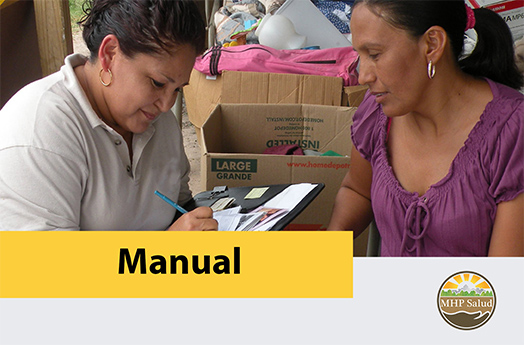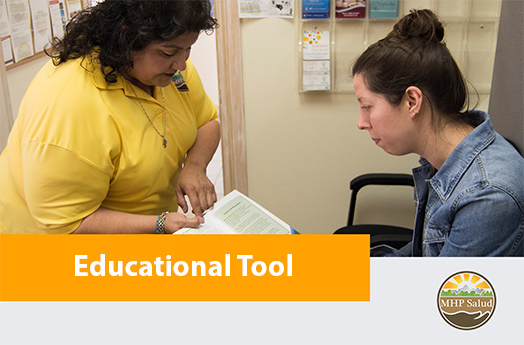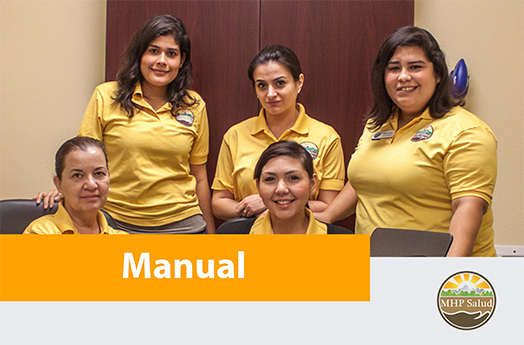Promotores and Promotoras de Salud
Promotores or Promotoras de Salud is a Spanish term used to describe trusted individuals who empower their peers through education and connections to health and social resources in Spanish speaking communities. They use their insights and knowledge of cultural norms to provide relevant health information and education to help Hispanics work through the barriers they face when addressing complex issues such as sexual assault, navigating the health care system, and gaining access to affordable fresh and nutritious foods.
Further, Promotora programs are known to yield positive results within the communities they serve. For example, the health care application assistance provided through MHP Salud’s Navigator program helps to increase coverage for kids and families. And, the teaching of healthy habits helps lower the risk of chronic conditions that disproportionately affect the Hispanic community, like hypertension, diabetes, and chronic diabetic kidney disease in our chronic disease management programs. In English, they are known as Community Health Workers (CHWs).
Where do Promotores and Promotoras Work?
Promotores or Promotoras de Salud work in low-income and underserved areas that are hard to reach for other health care professionals. In these areas, the predominant language is Spanish. These communities can be housed within urban cities and suburban neighborhoods or in rural areas where agriculture is often the center of economic influence.
In fact, many of MHP Salud’s direct service programs operate inside the rural communities along the Texas-Mexico border known as colonias. In the colonias, there is a lack of basic living necessities like potable water, septic or sewer systems, electricity, paved roads, or safe and sanitary housing. As a result, residential life here is very different from many urban and suburban communities in America.
Residents here learn to lean on each other heavily for support and guidance. Being that Promotores and Promotoras are members of the communities they serve, the work other health professionals may have to do to build well-established trusted relationships, is already done.
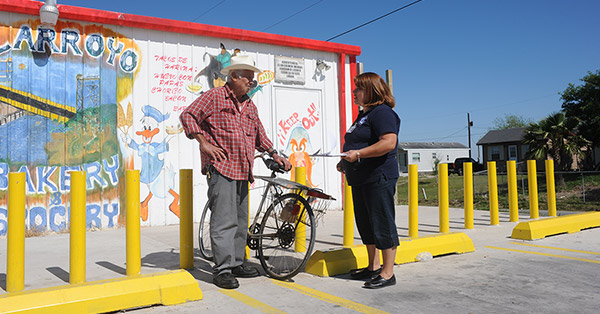
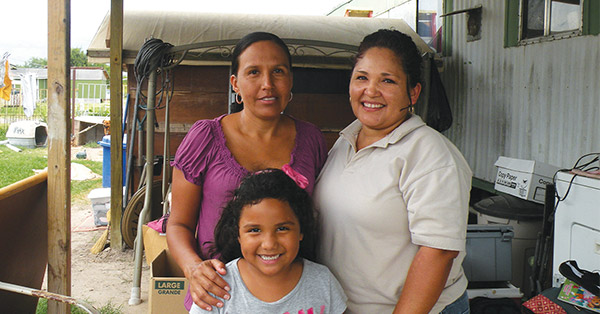
One challenge that the residents of these distinct communities often have in common are the effects of living within a food desert. A food desert is described as an area where there is limited to no access of fresh produce. This could be because the community doesn’t have a major grocery store, or individuals don’t have reliable personal or public transportation to get to one.
Promotores and Promotoras have a deep understanding of the challenge’s individuals face finding health information, resources, and healthy and nutritious foods in colonias and other under-resourced Spanish-speaking areas of the U.S. Familiarity with the community is an essential part of what allows Promotores and Promotoras the access to be able to distribute health information and promote health initiatives effectively.
What do Promotores and Promotoras de Salud Do?
Although Latinos are one of the fastest growing ethnic groups in the United States, they represent a small percentage of health care professionals. Promotoras cultural ties to their communities gives them a strong desire to help and the ability to empathize with situations that the individuals they serve face. This understanding allows them to be an effective liaison between doctors and patients and fill a gap in terms of providing general health information and referring individuals to health resources on issues that are directly related to the Hispanic community.
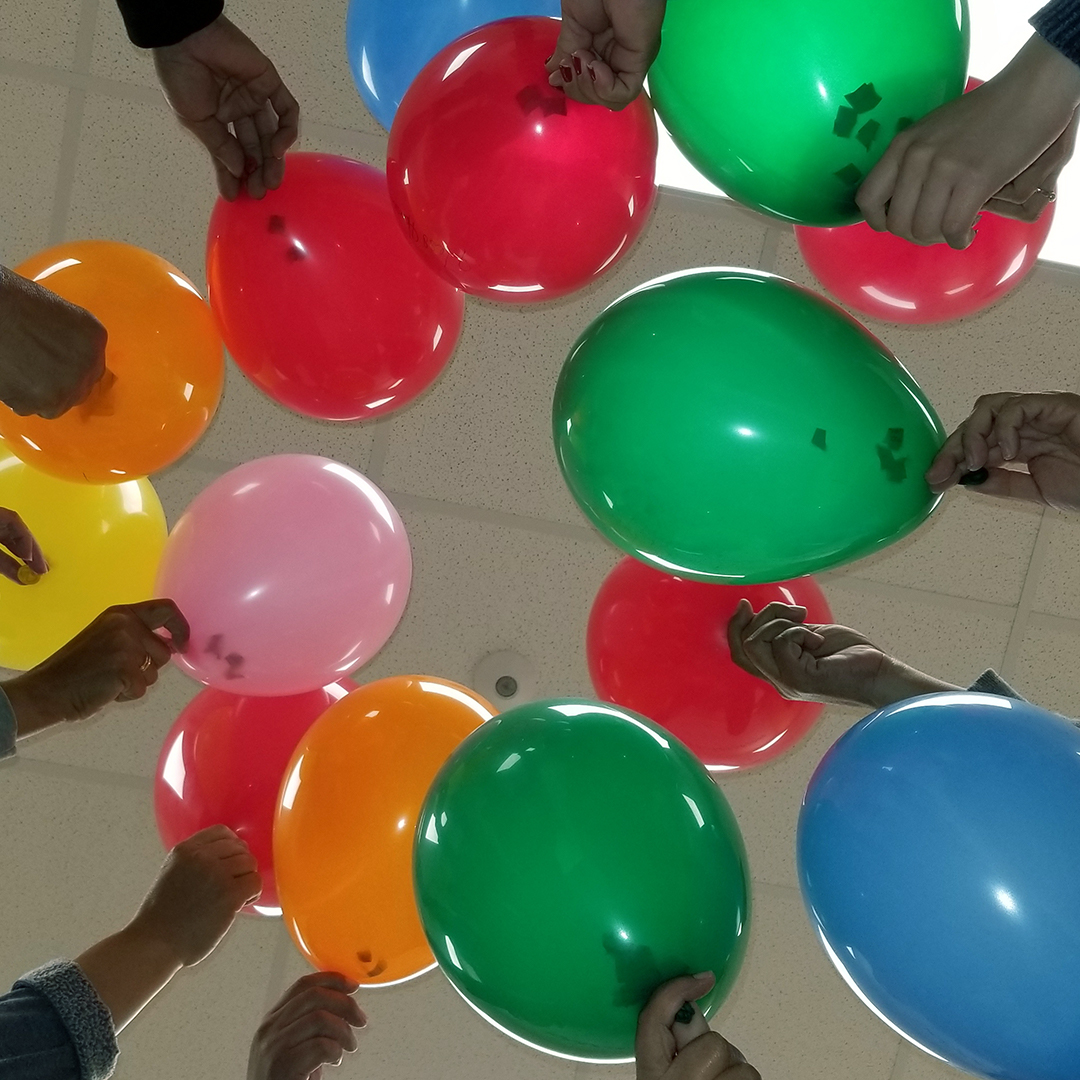
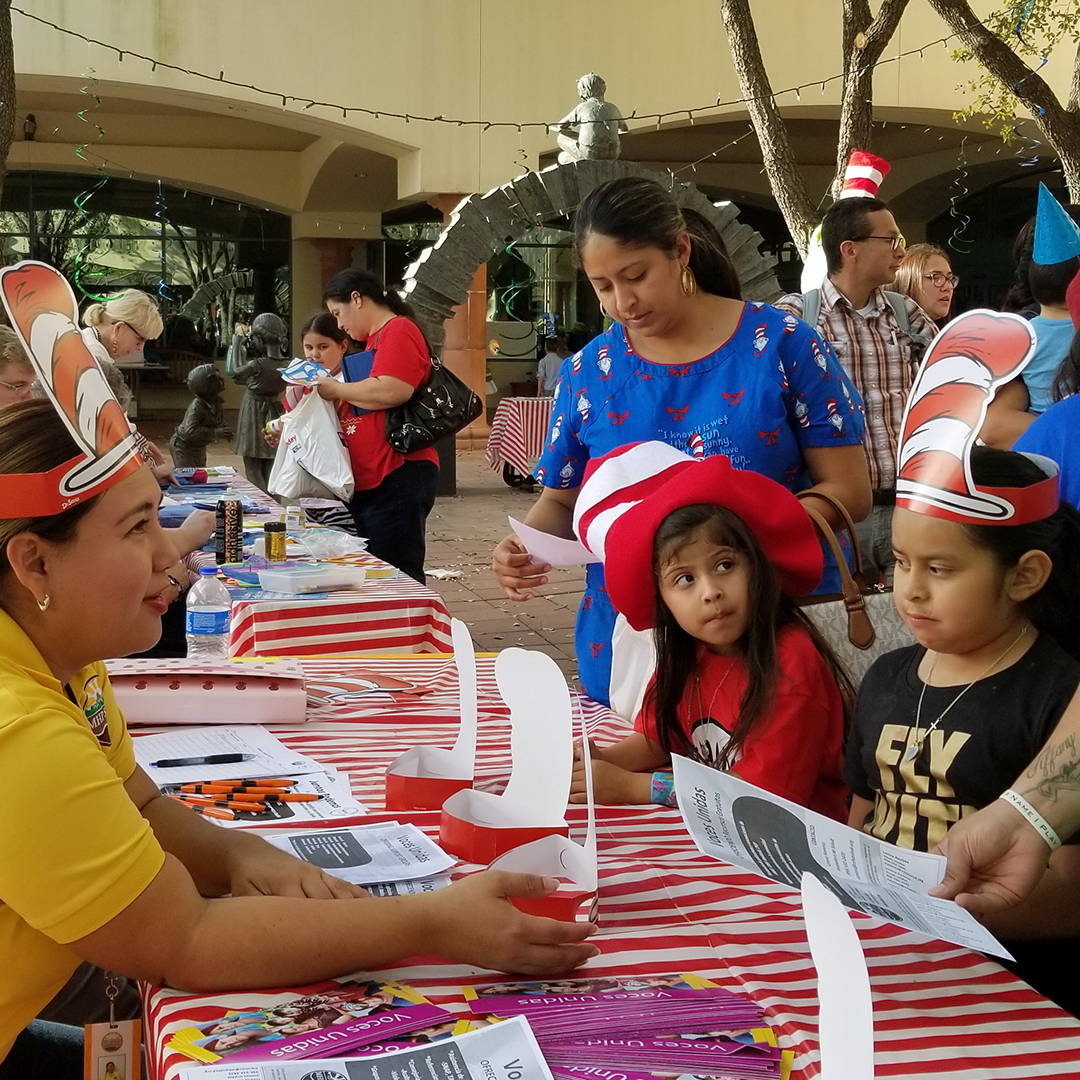
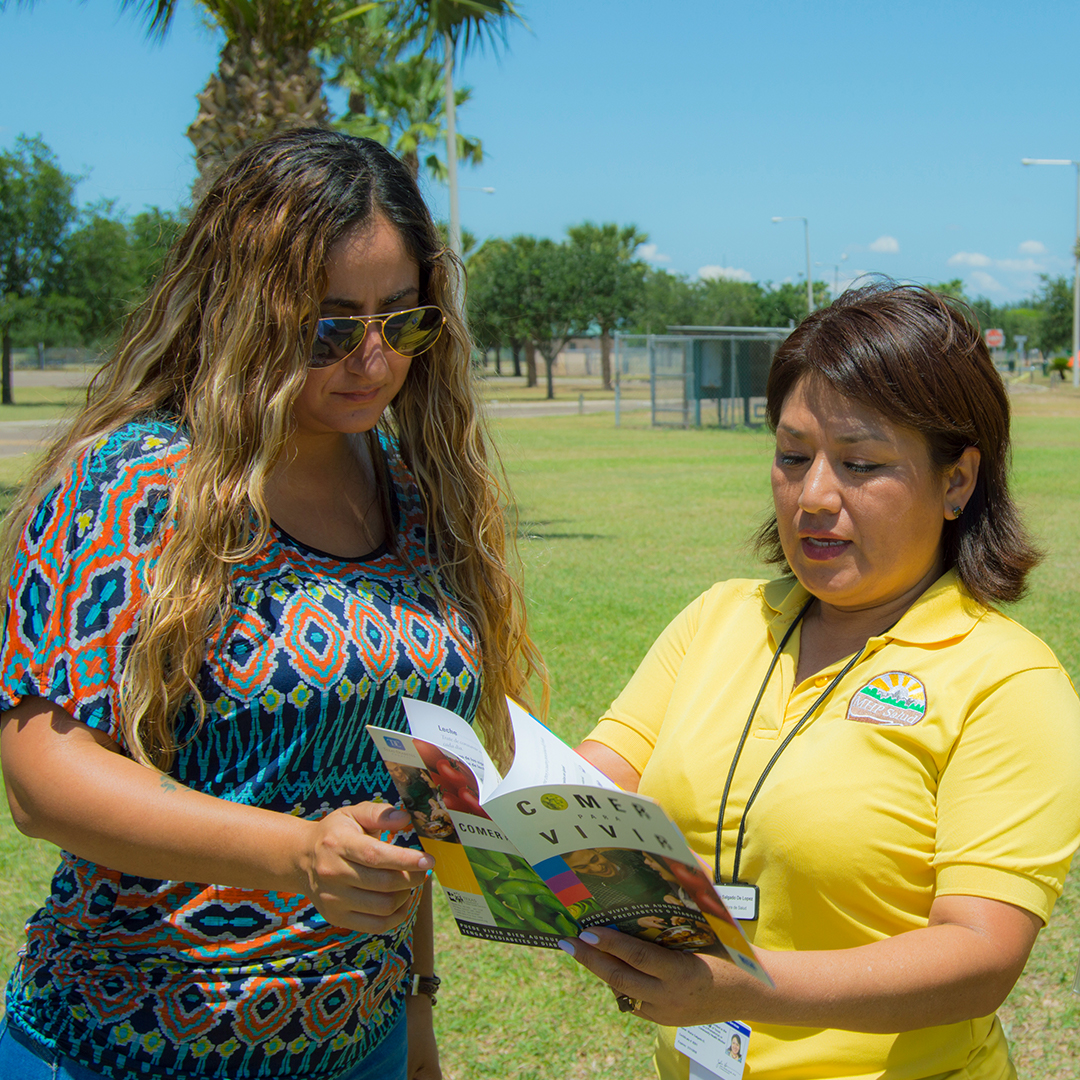
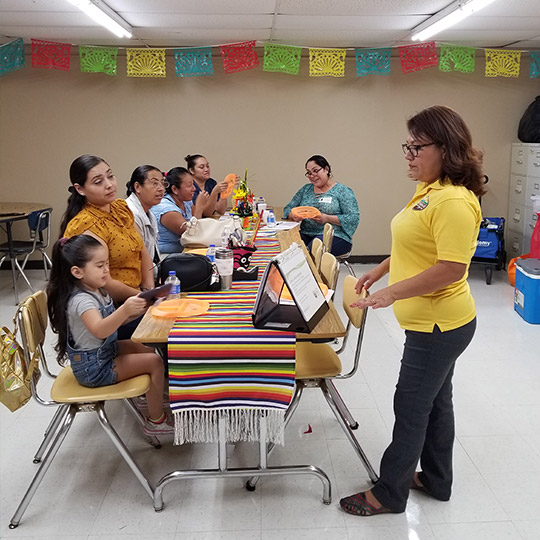
Promotores and Promotoras de Salud Have Access in Hard to Reach Hispanic Communities
Many of the families that live within the low-income areas face difficult circumstances when trying to access community and health resources. Travel challenges, like not owning a vehicle and limited public transportation service, is a major one. Promotores and Promotoras are effective in this regard, as they can bring health information straight into the community. To reach families they will go to community centers, churches, schools and conduct door to door outreach to provide educational materials and speak with individuals about health.
Promotores and Promotoras Increase Positive Health Outcomes
The ability to penetrate these tight-knit communities with education and information is especially crucial for Hispanics that have or are at risk for chronic diseases. Conditions like chronic diabetic kidney disease disproportionately effect the Hispanic community, putting more weight on the importance of Promotor and Promotora activities that produce positive health outcomes like:
- Providing health outreach and educational sessions in Spanish
- Finding and sharing health information that has been translated
- Encouraging and reminding individuals to keep up with their doctor’s appointments
- Using life examples that the community can identify with
- Helping to identify foods that are nutritious and available near by
- Locating and sharing healthier recipes for cultural dishes
- Demonstrating activities community members can do to live a more active lifestyle
- Helping individuals’ access and understand local, state, and government resources
Promotores and Promotoras de Salud Provide Application Assistance
Complex family situations, and limited English proficiency makes applying for health insurance difficult for many of the individuals Promotores and Promotoras serve. Programs that provide application assistance have become increasingly important as underinsured rates grow. What makes Promotora programs unique is that they can directly reach the Hispanic community, which has some of the highest rates of uninsured individuals.
Promotores and Promotoras are great at conducting effective outreach which is crucial during periods of open enrollment (the time period in which individuals who qualify can sign up for and make changes to health insurance plans). For example, during this period, Promotoras in MHP Salud’s Navigator program take part in the local news broadcast to give insight on the program and share contact information with the community at large, all at one time.
Additionally, the benefits of the relationships between Promotores and Promotoras and community members allows them to easily follow-up and check in with individuals even after programs have ended to provide further assistance if needed.
Promotores and Promotoras de Salud Can Build Social Support in Hispanic Communities
Promotores and Promotoras are uniquely qualified to provide social support and address issues around mental health. Many Promotor and Promotora de Salud programs work to address sensitive topics like sexual assault, intimate partner violence, and stalking. Using the expert knowledge of the cultural norms of their communities, they can tackle stigma and develop meaningful, trust-worthy relationships. These relationships can be leveraged to build confidence in sexual assault victims who seek to express themselves or are looking for a social outlet.
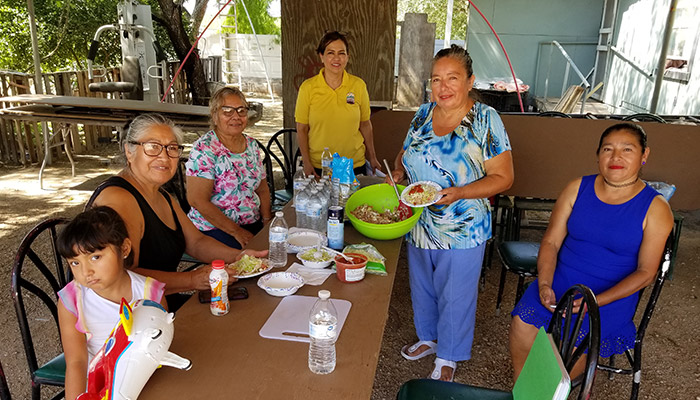
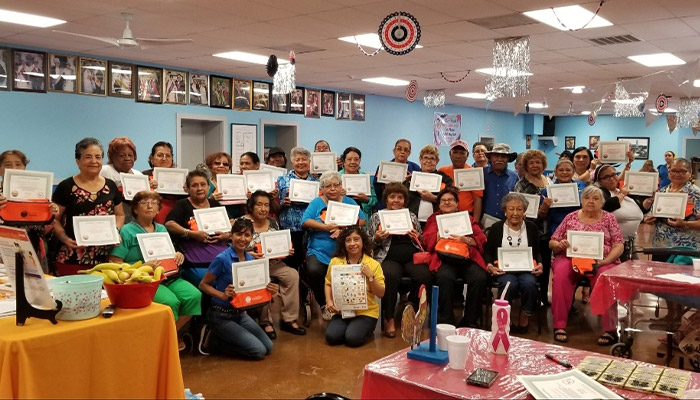
The personal connections and bonds of trust are particularly important for Latina survivors of sexual assault. Research has found that a large percentage of Hispanic women who experience abuse never report it. These women prefer to talk with family and friends, which further highlights the importance of the relationship Promotores and Promotoras can build with survivors.
In addition to outreach and education, Promotora programs include unique and creative activities that empower individuals to find the courage to share their stories. In our program, El Arte de Sobrevivir, Promotoras use art-based activities, like jewelry making, as a creative way to help victims of sexual assault feel confident in expressing themselves. Programs like El Arte de Sobrevivir showcase the versatility of activities Promotores and Promotoras can lead in Hispanic communities.
Promotora de Salud Resources
In order to do their complex work, Promotores and Promotoras must possess or build communication and interpersonal skills to conduct effective outreach in their communities. In addition, they must develop the skills to facilitate educational sessions and be able to coordinate assistance from many different resources to many different individuals who understand information better when it is in Spanish. And due to the sensitive nature of some of the issues they address; Promotores and Promotoras need personal strength as it’s possible that they’ll be working with individuals they already have relationships with.
It is crucial that Promotores and Promotoras feel supported in their unique roles. MHP Salud has used over 35 years of experience to develop free resources to help Promotores and Promotoras de Salud strengthen and increase their skills, and resources to help Supervisors and Managers support them.

